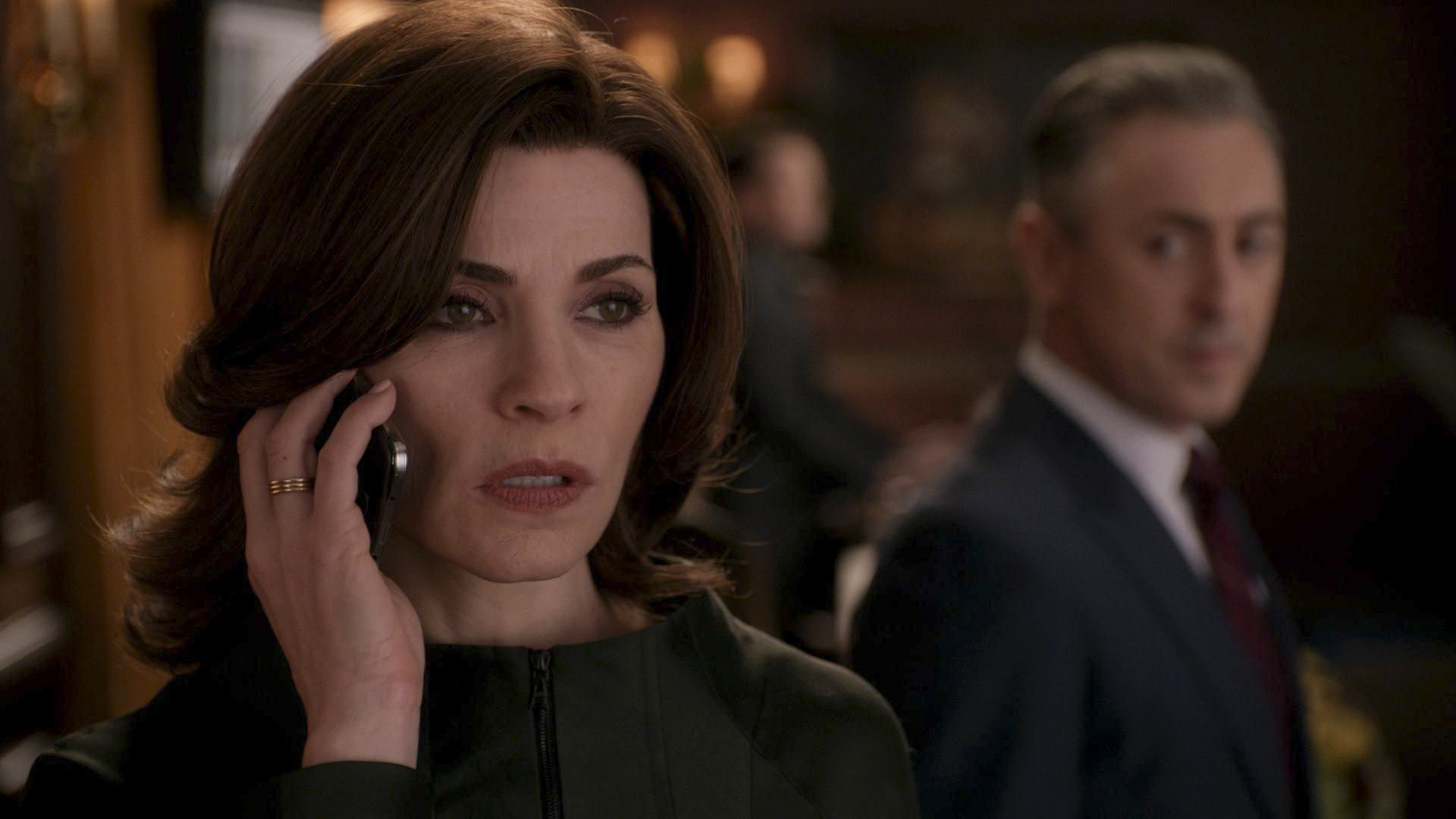
The Good Wife didn’t get snubbed by the Emmys — it got spurned. Sure, The Americans, Tatiana Maslany from Orphan Black and Brooklyn Nine-Nine all probably deserved nominations too — but those oversights can be rationalized. The Good Wife’s missing nomination defies reason: the show had its best season ever this year — removing a main character in a way that no other network show would dare to do and somehow improving after his departure. And yet still, it didn’t get a nominations.
Let’s talk about this season of The Good Wife. There are spoilers ahead, so if you haven’t seen the show, stop reading right now and go start watching. You’ll thank me later.
Will is dead. Not just dead, but shot. Killing off a likable main character isn’t radical on TV: Game of Thrones beheaded its hero, House of Cards pushed the one person who could stop Frank Underwood in front of a train, Homeland (mercifully) hanged a character that probably should have died in season one. But those shows are on HBO, Netflix and Showtime, all of them prestige dramas backed by cable channels with large checkbooks who pay their writers to take risks. Not so for network TV where main characters are all but guaranteed survival. Even if a main character is killed off, it’s usually on a show (like on Downton Abbey or Grey’s Anatomy) in which there are dozens of other characters to fill his or her void.
Josh Charles’ departure could have been a death sentence for The Good Wife, but the show embraced it wholeheartedly. His death was realistic and messy: Alicia (Julianna Margulies) gets no closure, but rather is left with guilt over her last fight with her ex-lover, confusion about her marriage and a cut-off voicemail. She tries to hunt down an explanation for why Will called her minutes before his death but finds none. It’s heart-wrenching, but she moves on and so does the audience.
The power struggle following Will’s demise at his firm, Lockhart Gardner, was more compelling than any storyline on the show in years. Old characters like Diane Lockhart (Christine Baranski) and Louis Canning (Michael J. Fox) were forced to change and grow in Will’s absence, while new, dynamic characters like Finn Polmar (Matthew Goode), the man who tried to save Will, emerged from the tragedy and propelled the show forward.
No doubt, the competition for Emmy nominations is fiercer than ever. Breaking Bad had an epic final season, Game of Thrones continued to impress both critics and millions of fans and True Detective featured two outstanding performances. They were all shoo-ins. Mad Men, despite feeling stunted because of the mid-season split, cashed in on some of the emotional momentum it’s been building for seven seasons, like Sally’s parting wave to Don and Don and Peggy’s slow dance in the hotel room. But that still leaves room for a Good Wife nomination after an underwhelming season from a flailing Donwton Abbey and an over-hyped House of Cards run.
The Emmys have a history of honoring good shows even when the quality dips, as they have done with Breaking Bad or Mad Men in the past, which is why it’s all the more confusing that they didn’t recognize a great year from The Good Wife.
The most obvious explanation for the oversight is that The Good Wife is on CBS. The shows that were nominated this year hailed exclusively from HBO, AMC, Netflix and PBS. Network television is still considered to be the least prestigious television delivery system, ranking below premium cable channels (HBO), cable channels (AMC), streaming platforms (Netflix) and public television with British prestige (PBS/BBC).
The writers of The Good Wife are well aware of this perception: throughout season five last year, Alicia and her daughter watched an exaggerated (and hilarious) version of what looked to be an AMC prestige show featuring inexplicable sex and violence. The show also embarked on a Emmy campaign that called attention to the fact that they have to produce 22 quality episodes every year, not just eight like some of the nominees. Both clever gambits may have rubbed Emmy voters (and other show runners) the wrong way.
Another reason is that The Good Wife has dropped some Emmy nominations in recent years as it settled into the same routine. The big dramatics of this year’s firm split and murder were supposed to help it make a comeback. Perhaps these plots were perceived as a gambit for nominations or a trick to get a rise in viewership. While House of Cards could ride on last year’s momentum (the first Netflix show to ever be nominated), The Good Wife had to fight its way back into the Emmys’ good graces. It was rewarded with nods to Christine Baranski, Dylan Baker, Josh Charles and Juilianna Margulies but not for the writers.
These are only attempts to explain the inexplicable. In the end, the Emmys are arbitrary and often don’t matter. And if you’re still outraged, take solace in this fact: you’re not alone.
More Must-Reads From TIME
- The 100 Most Influential People of 2024
- The Revolution of Yulia Navalnaya
- 6 Compliments That Land Every Time
- What's the Deal With the Bitcoin Halving?
- If You're Dating Right Now , You're Brave: Column
- The AI That Could Heal a Divided Internet
- Fallout Is a Brilliant Model for the Future of Video Game Adaptations
- Want Weekly Recs on What to Watch, Read, and More? Sign Up for Worth Your Time
Write to Eliana Dockterman at eliana.dockterman@time.com